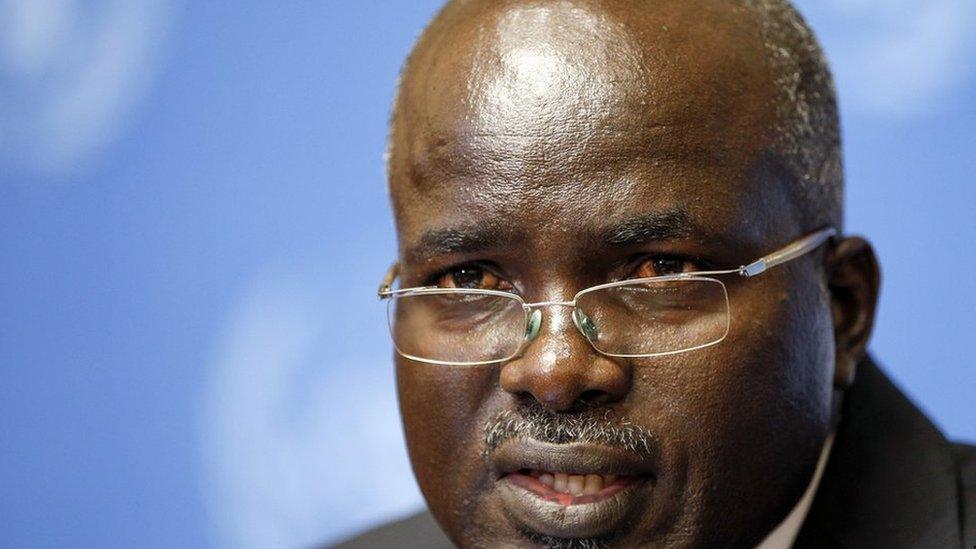Q&A: Burundi's fraught presidential poll
- Published
The civil war (1993 - 2005) that pitted the majority Hutus against the minority Tutsis raises concerns of lingering ethnic tensions
Burundi's President Pierre Nkuruniza has pressed ahead with his bid for a third term in elections despite widespread international concern that his decision could renew instability in the poor central African state.
Public anger over his bid triggered violent protests in April and a failed coup attempt in May. More than 70 people have died.
Under Burundi's constitution, a president is limited to a maximum of two terms in office. Mr Nkurunziza insists that he is eligible to stand again, arguing that his first term does not count as he was elected by parliament, not voters, in 2005 and he has been backed by the constitutional court.
The African Union (AU) has also denounced the poll and has refused to send observers - the first time it has taken such action against a member state.
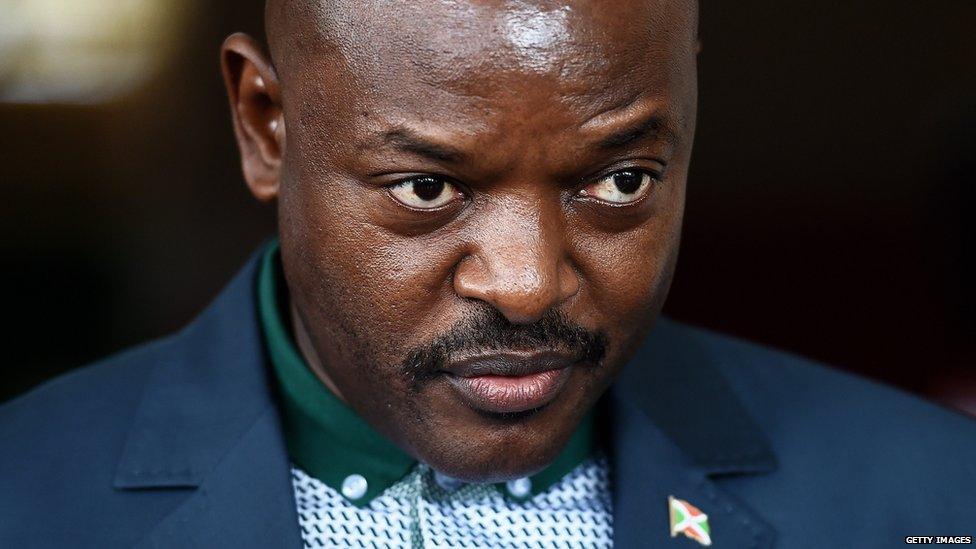
President Pierre Nkurunziza
Will civil war be re-ignited?
If President Nkurunziza wins, the violence seen in recent months could continue. The May coup plotters who escaped have vowed to create unrest until he steps down.
The civil war that broke out in 1993 was triggered by elections that year. The war was fought along ethnic lines with mostly Hutu rebels fighting against the politically dominant Tutsi minority. After years of negotiations, a landmark ceasefire deal set ethnic quotas for power-sharing in the military and other key areas in public service.
The peace agreement has held for over 10 years and social cohesion is one of its dividends. The anti-government camp is generally multi-ethnic but media reports of hate speech hint at the lurking danger of splits along ethnic lines.
The peace deal also paved the way for elections in 2005 and President Nkurunziza was appointed by parliament that year. That election and the subsequent one in 2010 was watched just as anxiously by the region.
Why does it matter to the region?
The region already hosts the UN's largest peacekeeping mission - in DR Congo, where a protracted civil war has been going on since 1998.
At its height, the DR Congo conflict drew in over half a dozen regional countries. Mutual suspicion is rife and governments frequently accuse their neighbours of harbouring rebel refugees who plan to return home and challenge the status quo.
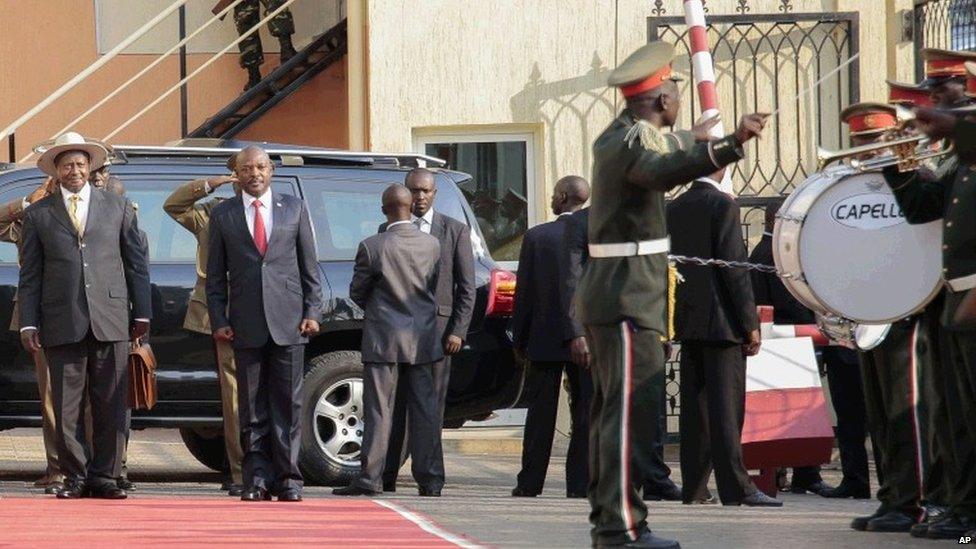
Ugandan President Yoweri Museveni (l) was appointed to chair mediation talks
A humanitarian crisis is unfolding. The UN says at least 170,000 people have fled to neighbouring countries including Tanzania, Rwanda, Uganda and DR Congo.
Many commentators have highlighted the irony of Ugandan President Museveni failed mediation efforts in Burundi. He has been power since 1986 and changed the constitution to remove presidential term limits.
Is there a popular challenger?
President Nkurunziza is representing the CNDD-FDD, (National Council for the Defence of Democracy-Forces for the Defence of Democracy), which he joined in 1995 when it was a Hutu rebel group.
He led the group as rebel commander and through its transition into a political movement. A former teacher and born-again Christian, he is keen to portray himself as a man of the people, working to rebuild the country after decades of civil war.
He is almost certain to be re-elected, as his four main rivals have pulled out of the poll.
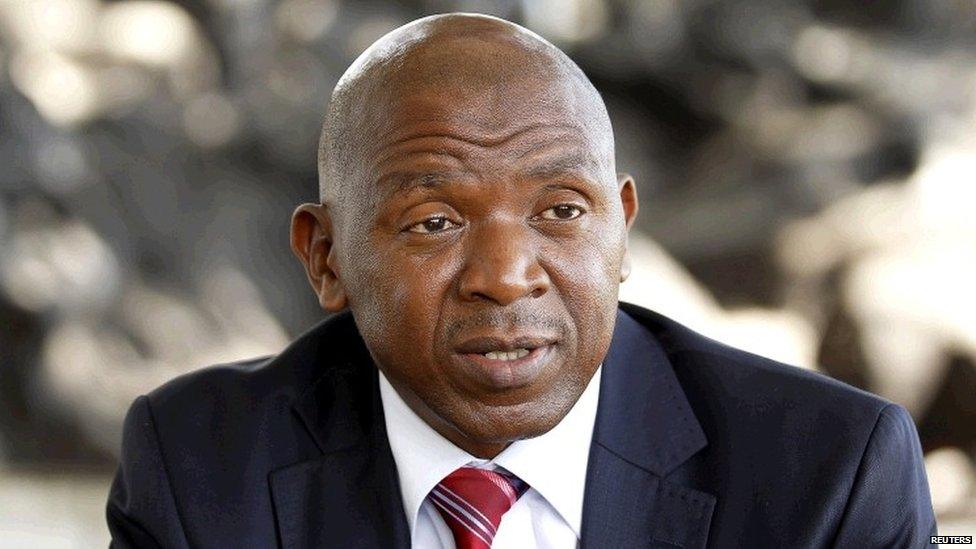
Opposition leader Agathon Rwasa called for a boycott of the poll
They say a security clampdown, including the closure of private radio stations after the coup attempt, prevents a free contest.
However, the electoral commission has kept their names on ballot papers - a move aimed at giving the poll legitimacy, critics say.
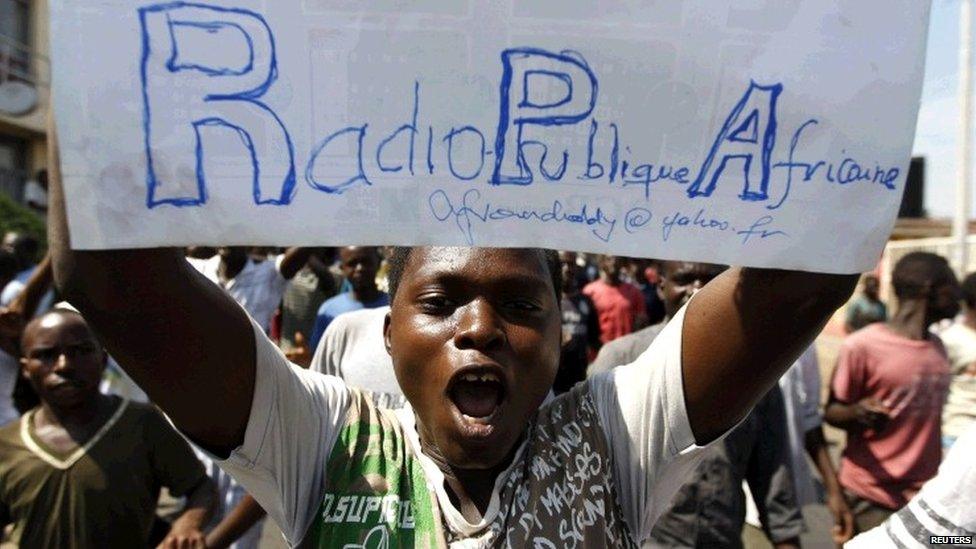
African Public Radio was shut down for broadcasting a statement issued by coup plotters
Of the four, Agathon Rwasa is the most significant.
Like Mr Nkurunziza, he is a former Hutu rebel commander who was accused of committing widespread atrocities during the civil war.
He also boycotted the 2010 election, alleging fraud and intimidation.
BBC Monitoring reports and analyses news from TV, radio, web and print media around the world. You can follow BBC Monitoring on Twitter, external and Facebook, external.
- Published7 July 2015
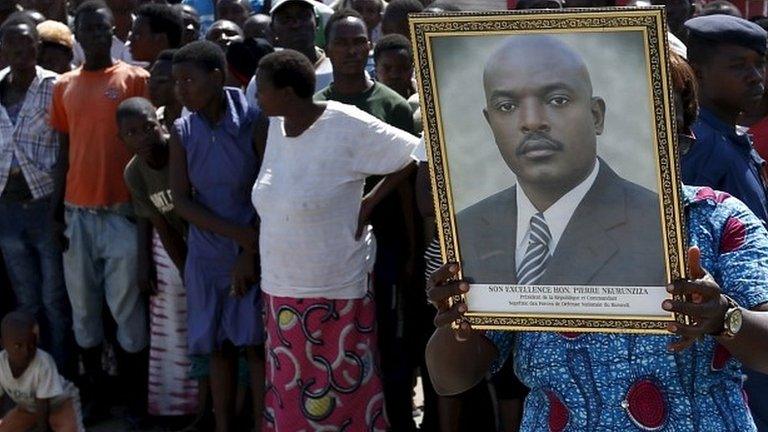
- Published29 June 2015
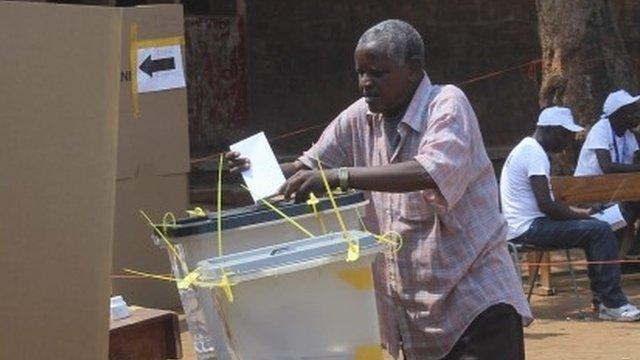
- Published25 June 2015
